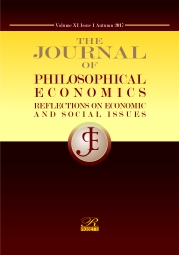A review of the Granger-causality fallacy
A review of the Granger-causality fallacy
Author(s): Mariusz MaziarzSubject(s): Philosophy, Social Sciences, Economy, Special Branches of Philosophy, Sociology, Philosophy of Science, Social Theory, Socio-Economic Research
Published by: Editura Rosetti International
Keywords: Granger-causality; epistemology of causality; causality testing;
Summary/Abstract: Methods used to infer causal relations from data rather than knowledge of mechanisms are most helpful and exploited only if the theoretical background is insufficient or experimentation impossible. The review of literature shows that when an investigator has no prior knowledge of the researched phenomenon, no result of the Granger-causality test has any epistemic utility due to different possible interpretations. (1) Rejecting the null in one of the tests can be interpreted as either a true causal relation, opposite direction of the true causation, instant causality, time series cointegration, not frequent enough sampling, etc. (2) Bi-directional Granger causality can be read either as instant causality or common cause fallacy. (3) Non-rejection of both nulls possibly means either indirect or nonlinear causality, or no causal relation.
Journal: Journal of Philosophical Economics
- Issue Year: VIII/2015
- Issue No: 2
- Page Range: 86-105
- Page Count: 20
- Language: English

